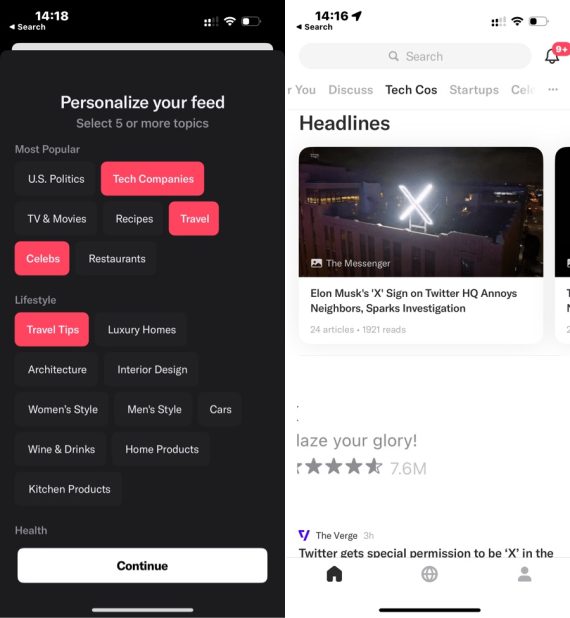Artificial intelligence simplifies the process of curating content. AI-powered platforms can locate, summarize, and analyze relevant articles, social media posts, and more. Example tasks include:
- Track industry trends and brands,
- Produce outlines on critical topics for internal reference,
- Condense and clarify complicated, extended articles.
- Produce keyword-rich headlines, subheads, tables of contents, and more.
What follows are five handy AI-driven content curation tools.
AI-based Content Curation Tools
Feedly utilizes AI to gather, analyze, summarize, and prioritize articles, press releases, and social posts from thousands of sources in real time. The feature — called “Leo” — creates a smart feed based on a user’s Feedly search. Users can track trends or even competitors’ brand names using the tool.
Users can combine keywords to narrow the results, such as merging “Diversity & Inclusion” and “Technology” for articles on those dual topics.
You can train Feedly’s AI to prioritize or mute topics. For example, you can train Feedly AI to prioritize product launch articles related to artificial intelligence.
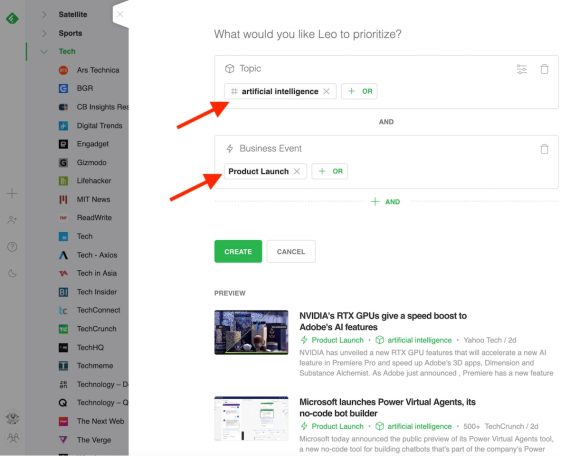
Feedly’s “Leo” AI can mute topics or prioritize them, such as product launch articles related to artificial intelligence. Click image to enlarge.
Users can click “Less like this” down arrows to train AI. Feedly has many more features, such as saving in-depth articles in “boards,” inserting in-article notes, and sharing to social media channels.
Feedly’s enhanced AI tools are available only for premium members starting at $99 per year.
—
GigaBrain is a new tool that scans discussions on Reddit and other communities on a given topic. Type your keyword, and the tool will find relevant discussions and create a handy article summary to filter by an appropriate subreddit.
All the sources are included and summarized below the introduction. The summary will consist of the original post and takeaways from the comments. You can change your summary and sources by altering the sorting options: “Most Relevant,” “Most Recent,” or “Most Upvotes.”
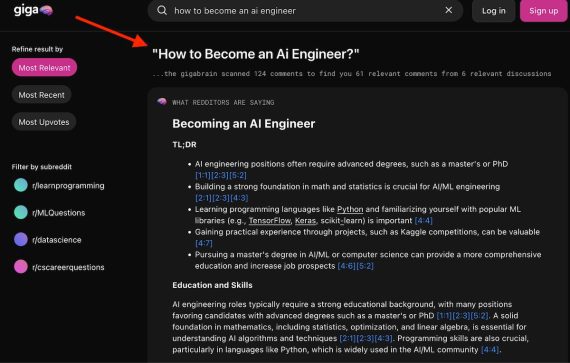
GigaBrain scans and summarizes discussions on Reddit and other communities on a given topic. This example is for “How to become an AI engineer?” Click image to enlarge.
—
Glasp is a free app for Chrome and Safari to summarize, highlight, and save notes from pages you are reading. All notes and highlights are saved to your Glasp profile page.
There you can generate and tweet an AI summary. You can make your profile public and let others track your curated content.
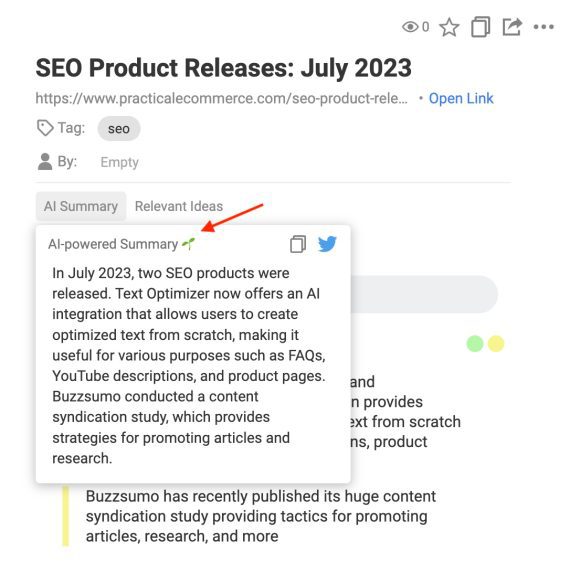
Glasp summarizes, highlights, and saves notes from web pages. This example is for an article on Practical Ecommerce from the author. Click image to enlarge.
—
Consensus is a search engine for research papers that utilizes AI, as follows.
- Create more descriptive titles for easier scanning. Each tile contains a finding that AI has extracted from a research paper.
- Use a “Synthesize” feature that combines several relevant studies into a one-sentence summary that answers a question. The feature can analyze up to 10 papers concurrently.
- Generate “The Consensus Meter,” which classifies the most relevant findings based on how they answer your question.
Consensus offers a limited free version. Premium plans start at $7.99 per month, billed annually.
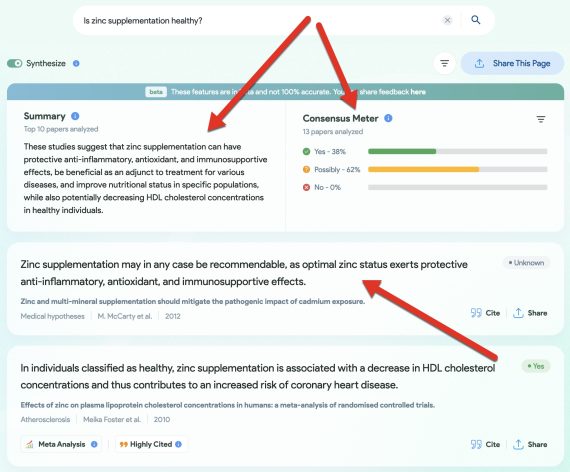
Consensus, a search engine for research papers, uses AI to repurpose titles, summarize text, and gauge relevancy to a particular query, such as “Is zinc supplementation healthy?” Click image to enlarge.
—
Artifact is a free mobile app that uses AI to curate articles and create summaries. To start, select at least 10 (very broad) categories. Then teach the algorithm by disliking content and asking it to show less of a certain type of article. You can also report click-baiting titles.
Users can add their contacts who also access the app. The tool will surface their favorite content. The app can send push notifications of daily trending news, add news to the “Read later” folder, and show your reading history.
Artifact could help folks who want to monitor broader topics. It has no settings to track a tight niche other than blocking keywords and sources.

